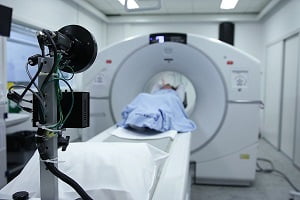Gallbladder Cancer Screening and Early Detection
- Updated on: Jul 2, 2024
- 3 min Read
- Published on Feb 7, 2021

Gall bladder cancer occurs when some abnormal masses or tumors are formed in the gall bladder due to uncontrolled cell division. It is very difficult to diagnose gall bladder cancer in the early stages because it does not present any specific symptoms initially and also because gall bladder is hidden behind the liver.
Is Early Detection of Gall Bladder Cancer Possible?
Early detection of gallbladder cancer is very difficult especially when the cancerous tumors are small in size and confined within the gall bladder. Routine physical exams also fail to detect these cancerous tumors because gall bladder is located deep inside the body.
There are no blood tests or any other tests that can be used for diagnosing gall bladder cancers in their early stages. This is the reason that most of the gall bladder cancers are detected only after cancer has grown enough to cause signs or symptoms.
In some people, gall bladder cancers are detected in early stages before they have metastasized to other body parts. Most of these cancers are detected accidentally during removal of gall bladder due to gallstones. When such removed gall bladders are analyzed in the labs, they present some small or pre-cancers that didn’t present any symptoms.
More: Gallbladder Polyps: Can They Be Cancerous?
More: Real Life Experiences About Coping With Cancer
Screening of Gall Bladder Cancer
Screening means testing people for the early stages of a disease before it presents symptoms of the disease.
Screening tests can be helpful if they have the following characteristics:
- Reliability for diagnosing cancers
- Benefits should be more than the associated harms
- Must be easy to follow for people
Gall bladder screening is usually not recommended for patients because it is very difficult to detect gall bladder cancer in the early stages. Physical examinations are usually unable to detect early-stage gall bladder cancers, and routine blood tests are not available for asymptomatic people.
Researchers are trying hard to find some methods that will help in the early diagnosis of gall bladder cancers but no specific procedure has been discovered yet. Currently available tests are not much reliable and cost-effective to be recommended for routine use in detecting early-stage gallbladder cancer in asymptomatic people.
The location of a gall bladder can also sometimes make early detection and screening difficult. Gall bladder is located deeply inside the body just behind the liver due to which the tumors may not be easily detected in standard diagnostic tests for screening.
In most cases, gall bladder cancers are detected in advanced stages when they present different symptoms such as jaundice, nausea, vomiting, unexplained weight loss, abdominal pain, and fever. Read about advanced stage gallbladder cancer.
Following are some of the diagnostic tests that may be suggested by doctors to gall bladder cancer patients for confirming the diagnosis:
- Bilirubin test for checking the level of bilirubin
- Liver function tests for detecting the levels of various substances in the blood like albumin, alkaline phosphatase, aspartate aminotransferase (AST), alanine aminotransferase (ALT) and gamma-glutamyl transferase (GGT)
- Imagining tests like X-rays, ultrasounds, magnetic resonance imaging (MRI) and computed tomography (CT) for detecting suspicious areas
- Cholangiography for locating any blockage in the bile ducts caused by tumors
- Angiography for detecting any blockage in the vessels due to tumors
- Tumor markers for diagnosing advanced stage gall bladder cancers
Is It Possible to Detect Gall Bladder Tumors in an Ultrasound?
Yes. Ultrasounds can help the doctors in detecting the presence of tumors in the gall bladder. Gallbladder ultrasounds also help in knowing how far the tumor has spread from the gall bladder.
Ultrasound can also detect a change (enlargement) in the lymph nodes surrounding the gall bladder which helps in understanding spread of the cancer to these areas.












